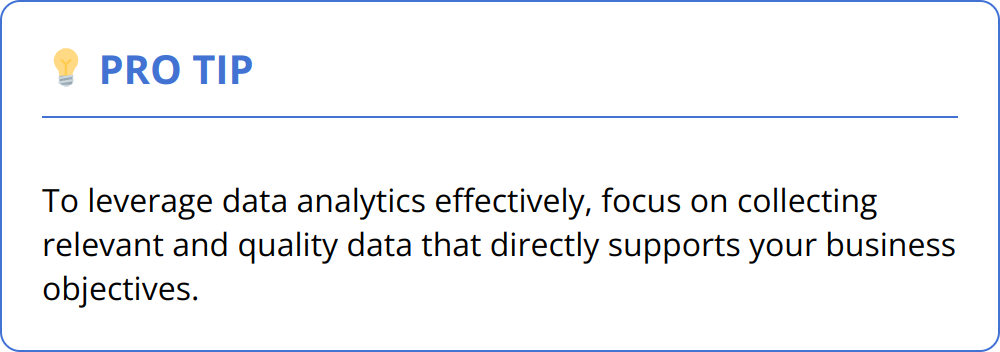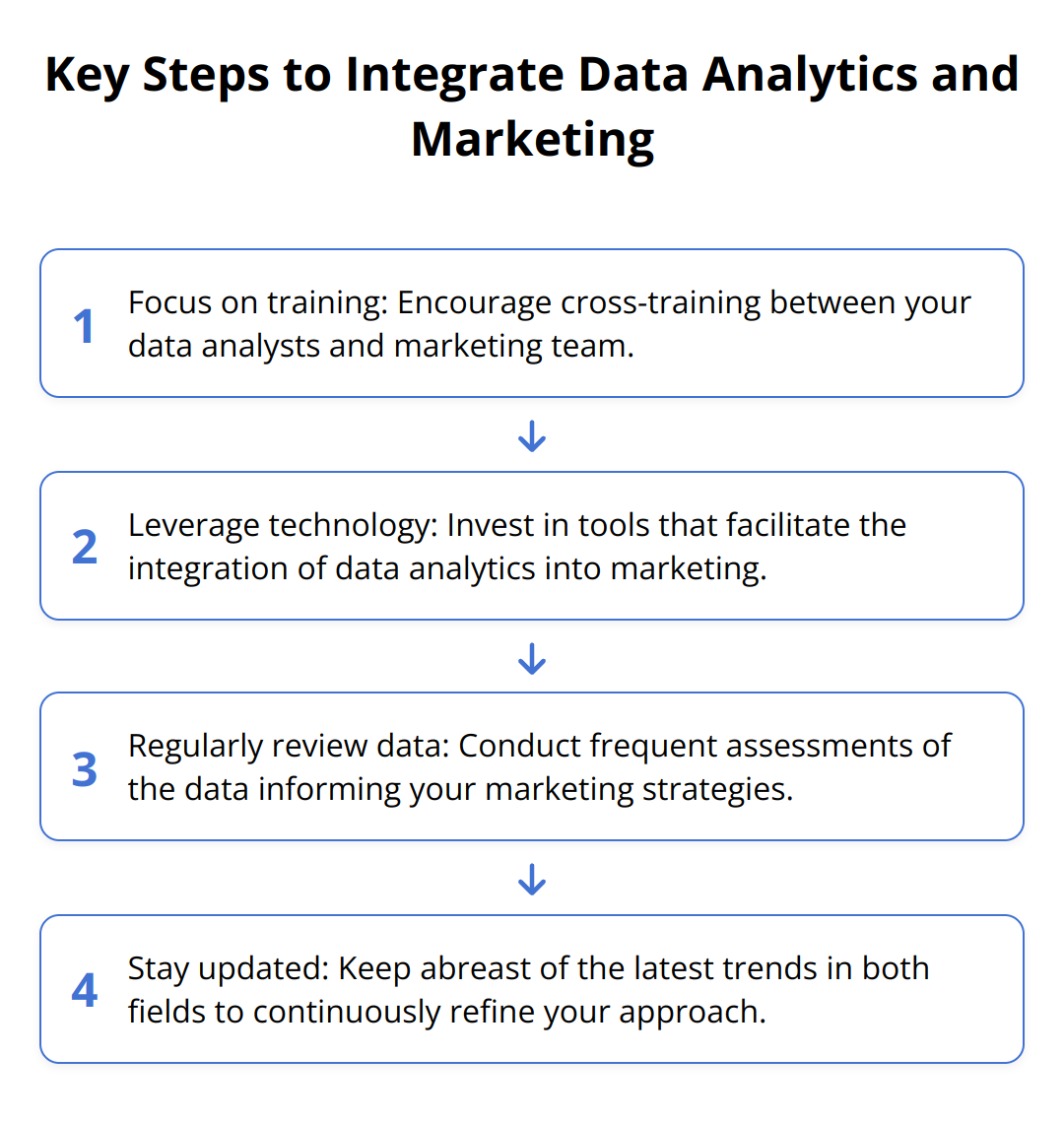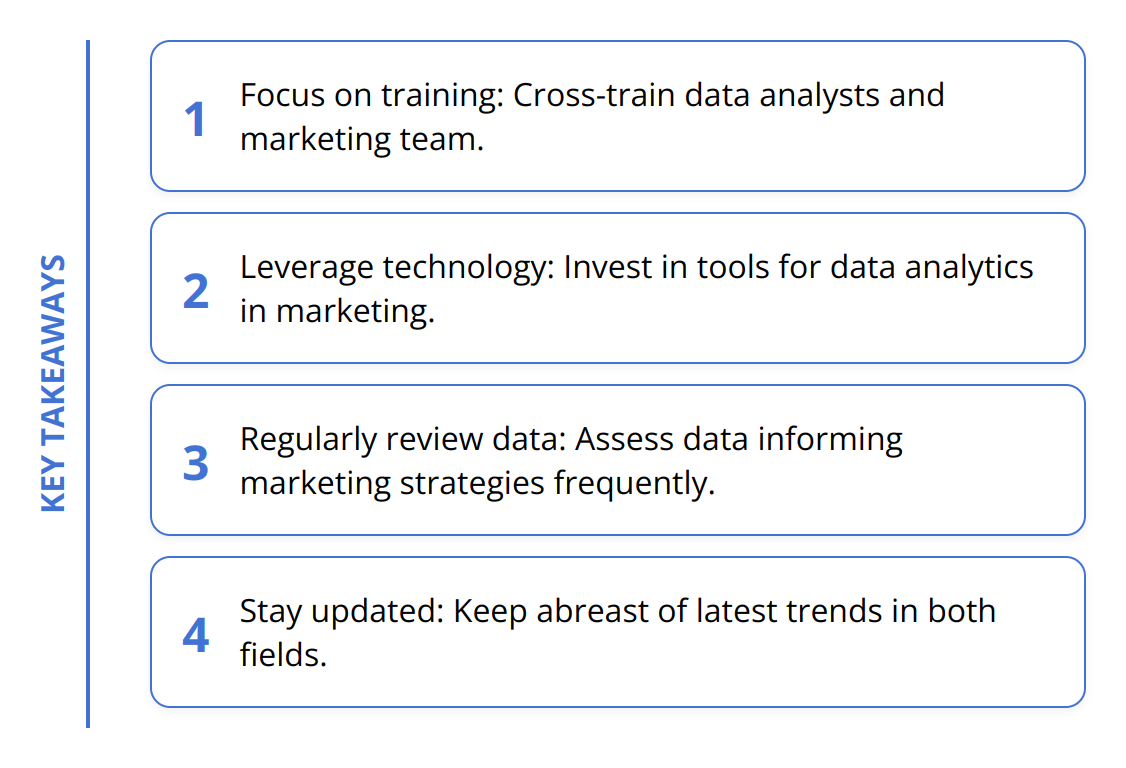Data analytics and marketing might seem like two entirely different worlds at first glance. The former revolves around numbers and patterns, while the latter focuses on creative strategies to engage customers. We at Emplibot believe understanding the distinctions and connections between these areas is key to unlocking their full potential in any business. This blog post aims to shed light on their unique characteristics, how they complement each other, and what the future holds for their integration.
Understanding Data Analytics
Data analytics is the backbone of modern businesses, enabling them to dissect vast amounts of data to reveal hidden patterns, correlations, and insights. It’s a systematic approach that combines various tools and techniques to analyze complex datasets, helping organizations make informed decisions. The scope of data analytics spans from understanding consumer behavior to predicting future market trends, thereby playing a pivotal role in strategic planning and operational efficiencies.

The Tools and Techniques That Make It Happen
To navigate the ocean of data, professionals lean on sophisticated tools and techniques. Data mining allows for the extraction of patterns from large datasets, while statistical analysis quantifies behaviors and predicts outcomes. Machine learning, a subset of artificial intelligence, automates model building, enabling systems to learn from data and improve from experience without being explicitly programmed. Visualization tools transform raw data into graphic formats, making the results understandable at a glance to non-technical users. Tools like Tableau and Google Analytics are prominent examples, offering deep dives into data without the need for advanced programming skills.
Its Crucial Role in Decision Making
The ultimate aim of data analytics is to drive better decision-making. With it, businesses can achieve:
-
Enhanced customer understanding: identify and anticipate needs.
-
Optimized marketing strategies: tailor messages and channel selection to individual preferences.
-
Improved operational efficiency: use historical data to streamline processes.
-
Risk management: predict and mitigate potential failures or downturns.
For instance, Netflix uses data analytics to understand viewer preferences, directly influencing their content creation and recommendation algorithms. This personalized approach not only improves customer satisfaction but also drives subscription retention rates.

Data analytics also aids in spotting market trends early, allowing companies to adapt swiftly. By analyzing social media data, businesses can gauge consumer sentiment towards products or services in real-time, adjusting their strategies accordingly.
For more detailed insights into how data analytics is transforming marketing, check out our post on data analytics in marketing.
In Conclusion
The intersection of data analytics and marketing offers businesses a powerful toolkit to understand and engage their audience more effectively than ever before. By leveraging the right tools and techniques, organizations can uncover invaluable insights that lead to better, data-driven decisions. Embracing data analytics isn’t just a strategic move; it’s an imperative for competing in today’s data-rich world.
Marketing Fundamentals
Diving deep into the essence of marketing, it’s essential to understand that while data analytics provides us with the what and the how, marketing introduces us to the why. This distinction is pivotal for businesses aiming to not just thrive but dominate in their respective fields.
Understanding Your Audience
At the heart of any successful marketing strategy is a profound understanding of the customer. This means going beyond demographics and into the psyche. What motivates your customers? What are their pain points, desires, and habits? The answers to these questions form the foundation upon which effective marketing strategies are built. For actionable insights on enhancing customer understanding, predictive analytics for marketing is a brilliant resource.
Creating customer personas and journey maps are practical ways to visualize and internalize the customer’s experience with your product or service. This understanding allows for more targeted and meaningful engagements, which, in turn, lead to better conversion rates and customer loyalty.
Creativity Meets Data
While data analytics offers the groundwork, creativity is the tool that will differentiate your brand in a crowded marketplace. The most memorable marketing campaigns are those that resonate on an emotional level, cleverly using storytelling, eye-catching visuals, and compelling content.
However, it’s critical to strike a balance. Data should inform creativity, not stifle it. Use insights gleaned from analytics to guide your creative efforts, ensuring they are not just innovative but also relevant to your target audience. For practical ways to blend these elements, the guide on marketing automation discusses optimizing your content strategy with analytics.

Innovation as a Strategy
In today’s fast-paced landscape, standing still is equated with moving backward. Innovation should be at the core of your marketing strategies, whether it’s through pioneering new channels of engagement or leveraging cutting-edge technology like augmented reality to create immersive brand experiences.
However, innovation is not just about using the latest tools but also about thinking outside the box in your approach to problems and opportunities. Always ask, “Is there a better, more efficient way to do this?” Emphasizing continuous improvement and adaptability will keep your strategies fresh and your brand relevant.
In marketing, as in most aspects of business, the secret to success is not just in doing different things, but in doing things differently.

Key Takeaways
-
Develop deep customer insights: Go beyond basic demographics to understand underlying motivations.
-
Use data to drive creativity: Let analytics guide but not limit your creative output.
-
Innovate constantly: Stay ahead by incorporating new ideas and technologies into your marketing strategies.
Following these principles will ensure your marketing efforts are not just seen but felt, driving not just transactions but genuine connections.
Data Analytics vs Marketing Differences
Exploring the landscapes of data analytics and marketing reveals distinct but complementary approaches and impacts on business objectives. Each field harnesses unique skillsets, mindsets, and problem-solving techniques that, when combined, can propel a business forward in an increasingly competitive environment. Understanding these differences is essential for leveraging both to achieve strategic advantages.
Different Approaches to Problem-Solving
Data analytics solves problems through a linear, logical process, starting with data collection, moving through analysis, and ending with actionable insights. It’s a methodical approach that relies on historical data and algorithms to predict future trends. Marketing, on the other hand, often tackles challenges with a more intuitive and creative process. It’s about crafting stories that resonate, leveraging human psychology, and building relationships. While data analytics provides the map, marketing decides the destination and the journey.
Skillsets and Mindsets
The required skillsets for data analytics include a strong foundation in mathematics, statistics, and computer science, enabling professionals to maneuver through complex datasets and extract meaningful insights. An analytical mindset is crucial, characterized by curiosity, skepticism, and an inherent desire to understand the ‘why’ behind the data. For marketing, creativity, empathy, and communication skills take center stage. Successful marketers possess an innate ability to understand human desires and craft messages that connect on a deeper level. They thrive on innovation and pushing the boundaries of conventional thinking.
Impact on Business Objectives
Data analytics and marketing both aim to drive business growth, but their contributions are measured differently. The impact of data analytics is often seen in increased efficiency, reduced costs, and risk mitigation. It helps businesses understand “what” is happening and “when” it might happen again. In contrast, marketing’s value is measured through brand recognition, customer engagement, and revenue growth. It’s about influencing “why” something should happen—why a customer should choose a particular brand or product.
In an era dominated by data, integrating data analytics with marketing strategies has become not just beneficial, but necessary for businesses aiming for the top. The symbiosis of these fields allows companies to not only understand their current state but also to anticipate future trends and innovate accordingly. For insights on integrating these areas effectively, explore the concept of marketing automation, which brings the precision of data analytics to the creative world of marketing.
Overall, while data analytics and marketing may travel different paths, their end goals converge on the success and growth of the business. By appreciating their unique contributions and fostering collaboration between these domains, businesses can unlock new levels of innovation and customer engagement.

Navigating the interplay between these fields offers a competitive edge, enabling businesses to not just respond to the present but to shape the future.
Wrapping Up
In the dynamic landscape of modern business, data analytics and marketing emerge as two sides of the same coin, each playing a vital role in shaping strategies and driving growth. Bridging the gap between these disciplines has never been more important. As we move forward, the integration of analytics into marketing strategies promises not only to refine these strategies but also to revolutionize the way businesses connect with their customers.

The future trends in this integration point towards a more seamless collaboration between data analysts and marketers, driven by advanced technologies and a unified vision. This evolution will enable businesses to not only understand their audience on a deeper level but also to personalize engagements like never before, making every marketing message feel tailored to the individual.
Emplibot is at the forefront of this shift, offering businesses the tools to keep their content strategies not only current but also deeply integrated with SEO principles and analytics. By automating the creation and publishing of SEO-friendly articles, Emplibot helps businesses maintain a vibrant digital presence, ensuring they are always aligned with the latest in marketing automation and analytics insights. Explore how Emplibot can transform your content strategy at Emplibot.com.
As we look towards the future, the roles of data analytics and marketing are set to become more complementary. Businesses that harness the power of both can anticipate not just meeting but exceeding their strategic objectives. The key lies in continuous learning, innovation, and embrace of technology—values that will steer the course of analytics and marketing into a new era of data-driven decision making and creative engagement.
In summary, the intersection of data analytics and marketing holds boundless potential for businesses ready to navigate its complexities. By fostering a culture of collaboration and leveraging cutting-edge tools like Emplibot, companies can unlock unprecedented growth and forge deeper connections with their audiences. The future is data-driven, and the journey there is one we’re excited to help shape.

